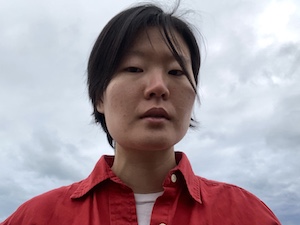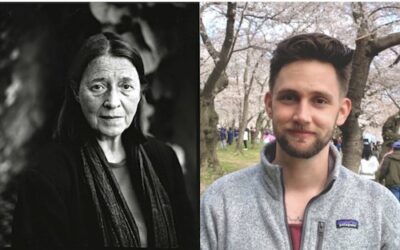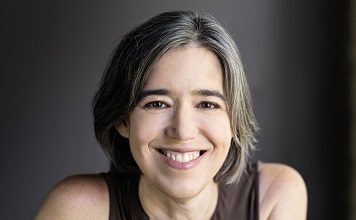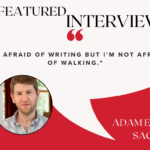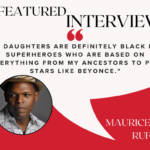miCRo: “Why I’m Caching a Gallon of Water near the Chimney Top Outlook of North Fork Mountain” by Bill King
King helps us ride the wave of grief to the shore, where it breaks over us, then retreats before it comes again.
miCRo: “Inversion can feel like weightlessness” by Anita Goveas
How do you navigate loss, upside down and a hundred feet in the air?
miCRo: “Apricots” by Yunkyo Moon-Kim
In “Apricots,” the speaker’s beloved pollinates apricot trees by hand, showing us what is, and what is not, subject to the passage of time.
miCRo: “Inventory of Your Things as I Empty Your House” by Anita Wright Collins
This piece moves seamlessly between fact and feeling, illustrating how objects are often the most powerful doorways into memories.
miCRo: “Convergent Evolution” by Kelsey Zimmerman
The feigning killdeer in this prose poem becomes a mirror to understand the speaker’s own evolution.
miCRo: “Language Difficulties” by Birgitta Trotzig, translated by Brad Harmon
Birgitta Trotzig’s “Language Difficulties” (translated by Brad Harmon) describes just how impossible it is to say what one means
miCRo: “Porcelain Spoons” by Amanda Galvan Huynh
This flash essay tells its story through what’s left off the page, the absences we feel but cannot bridge.
miCRo: “A Queer Girl’s Guide to Reading Fairy Tales” by Rebecca Turkewitz
Unable to imagine herself as the princess pining for a prince charming, the speaker of this piece looks closer and finds herself in the unconventional, the unexpected.
miCRo: “In the Same Space” by Parade Stone
On a single block beneath the thundering J train, Bed Stuy residents “seek connection, resist displacement.”
miCRo: “In Memoriam” by Chelsea Rathburn
Using the best tools of flash, this story reveals the complicated experience of grieving for a former spouse who’s passed away.
miCRo: “Porcelain Spoons” by Amanda Galvan Huynh
This flash essay tells its story through what’s left off the page, the absences we feel but cannot bridge.
miCRo: “Boys Will Be” and “Pennsylvania Turnpike, heading west” by Matt Del Busto
Matt Del Busto’s stunning poems take up age-old questions about how the past shapes us.



